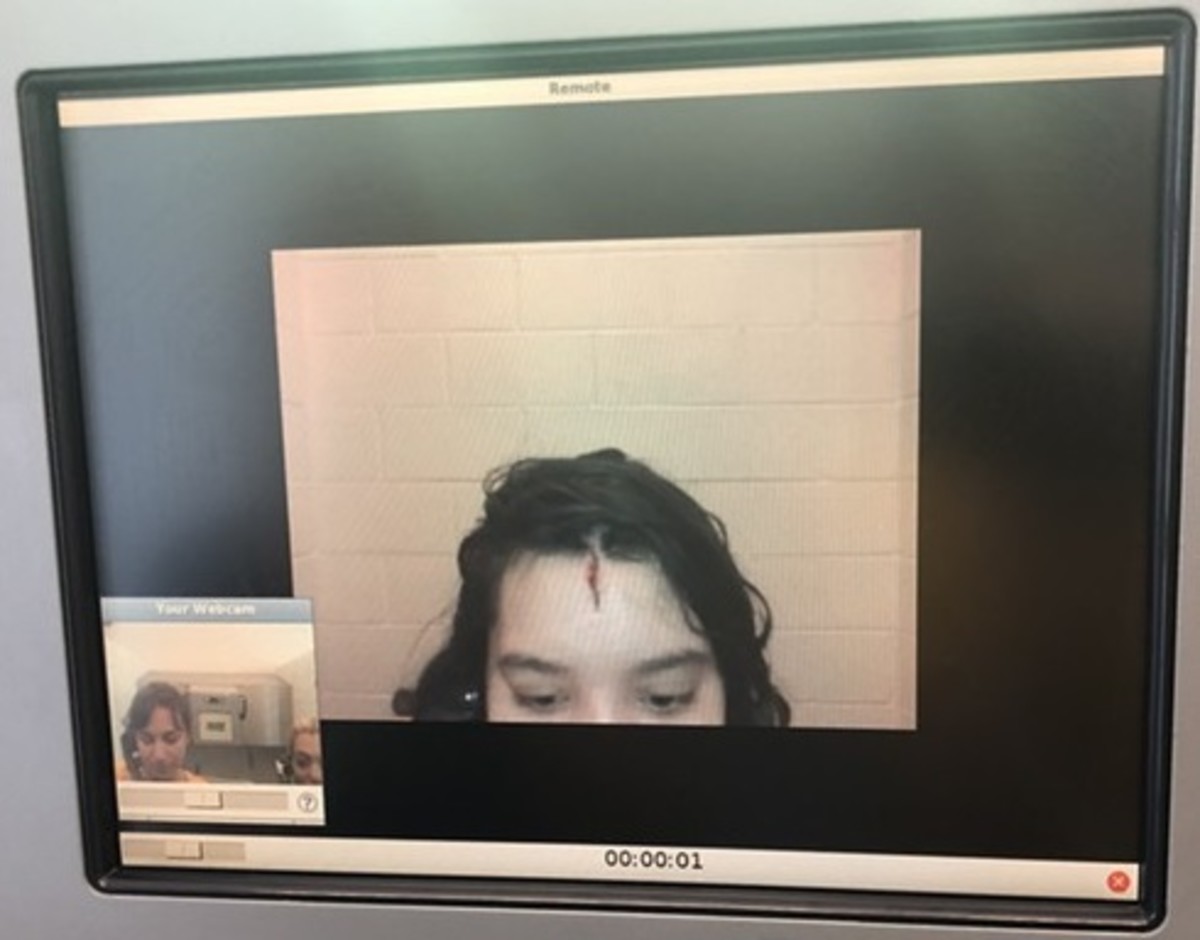Police Corruption: The Roger Rogerson Scandal
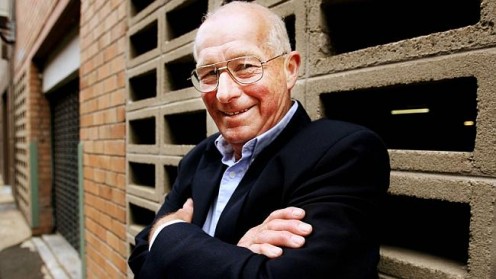
by Amber Maccione
Police corruption is an international problem (Bayley & Perito 2011). It is defined as the abuse of authority for personal gain. If broadly defined, it refers to any violation of rules even if there is no personal gain; narrowly, it refers to police personal using their position or authority for their own personal benefit instead of using it to benefit the public (Bayley & Perito 2011). Because of police corruption, The World Bank as reported that twenty-three countries’ populations view the police as a source of harm, risk, and impoverishment instead of a source of help and security (Bayley & Perito 2011). Out of all countries, the United States and Australia seem to be the leaders in police corruption (Bayley & Perito 2011). Therefore, it is imperative that a look at a certain officer in Australia is appropriate. Roger Rogerson, an officer of the law in Sydney, Australia, was removed from the force and later convicted of unethical behavior, which required him to serve time behind bars ("Roger Rogerson”). With all this corruption around the world, the question that begs to be answered is: “What can be done to ensure that police corruption is eliminated?”
Roger Rogerson, also referred to as “The Dodger” (“Roger Rogerson: Out of Jail, Ready to Talk” 2006), entered the New South Wales Police Force in 1958 at the age of seventeen (“Roger Rogerson: Out of Jail, Ready to Talk” 2006; Oldschool 2010). Within fifteen years of being on the force, Rogerson was promoted to Detective Sergeant at the age of thirty-four (“Roger Rogerson: Out of Jail, Ready to Talk” 2006). He was known as Australia’s most promising officer who would soon rise to the very top of his field (“Roger Rogerson: Out of Jail, Ready to Talk” 2006). He was very charismatic and well liked. It was also said that he was the top in IQ’s among those that had joined the force at the time he identifying him as one of the brilliant detectives ("Roger Rogerson”; “Roger Rogerson: Out of Jail, Ready to Talk” 2006). Although he was seen as the most effective detective on the force, Roger Rogerson was dismissed from New South Wales Police Force on April 11, 1986, because of his association with criminals (Oldschooler 2010; “Roger Rogerson: Out of Jail, Ready to Talk “ 2006; "Roger Rogerson”). So how could a promising detective become an ex-cop aftering receiving twelve awards including the highest police award in 1980, Peter Mitchell Trophy? (“Roger Rogerson: Out of Jail, Ready to Talk” 2006, Oldschooler 2010). Rogerson was a known associate of NSW, which was filled with police corruption (Oldschooler 2010). It was also known that Rogerson and Neddy Smith, a prominent criminal, had a working relationship is that Smith was an informant who stated that he was given clemency for any crime (except murder) (CITY OF SHARKS - PART 3 2011). In 1981, four years before being forced out of the police force, Roger Rogerson shot and killed Warren Lanfranchi (CITY OF SHARKS - PART 3 2011; "Roger Rogerson”). According to Rogerson, Lanfranchi had pulled a gun out on him while he was trying to arrest him. Hence, he shot Lanfranchi in self-defense. The coroner’s jury found that he had shot Lanfranchi while trying to arrest him, but did not confirm whether it was in self-defense or not ("Roger Rogerson”; CITY OF SHARKS - PART 3 2011). According to rumors, there were two other possible reasons Roger Rogerson could have shot Lanfranchi who Neddy Smith had befriended. The first rumor was that Lanfranchi has stolen from a drug dealer whom was being protected by police. The other rumor claimed that Lanfranchi had previously pulled a gun on a fellow police officer (CITY OF SHARKS - PART 3 2011). Whatever the reason, this was one of the incidents that cost Roger Rogerson his job.
Two years after being dismissed from the police force, Roger Rogerson was acquitted in 1988 of conspiring to murder Michael Drury, a fellow police officer ("Roger Rogerson”). He was found guilty in 1990 for conspiring to pervert the course of justice ("Roger Rogerson”). He served nine months in jail, until bail was granted for his appeal’s trial. He lost his appeal trial and served three years (1992-1995) in prison (Oldschooler 2010). Although he was found guilty, Rogerson still declares that he was an innocent ("Roger Rogerson: Out of Jail, Ready to Talk” 2006).
Anyone who has a promising career can fall from grace. There is a proverb that says that whoever you hang around or associate with, you will eventually become like. According to Roger Rogerson in an interview, he stated that he knew more criminals than he did police officers (“Roger Rogerson: Out of Jail, Ready to Talk” 2006). His reasoning behind this was that he locked up a lot, was good at working with informants because of his ability to converse, and frequently met with them for drinks to gain information as well as help them with family problems (“Roger Rogerson: Out of Jail, Ready to Talk” 2006). He also admitted that through his association with these criminals, he began to develop an admiration for them because of their strength and tenacity (“Roger Rogerson: Out of Jail, Ready to Talk” 2006).
Roger Rogerson is just one example of police corruption. According to the United States FBI, 56% of Americans rate that police as not having high ethical standards (Martin 2011). Because of corruption and the way American’s view police, police agencies are using new ways to select new officers. Police agencies only want to hire candidates with high ethical standards; hence, potential officers are being tested for psychological propensity to act ethically (Martin 2011).
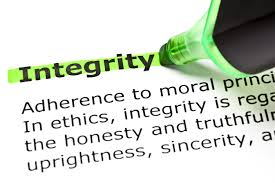
There are four areas of focus in studying police corruption: integrity, leadership, work environment, and police subcultures (Martin 2011). Integrity is broken down into seven areas. The first is prudence, which looks at an officer’s ability to discern. Second, officer’s need to be loyal and truthful in their relationships inside the work place as well as in society. This is classified as trust. Effacement of self-interests is the third area within integrity that focuses on keeping the officer from exploiting their authority to further themselves. Fourth, an officer needs to show courage. Fifth, they need to have intellectual honesty, which is admitting when they don’t know something. The last two are justice, giving what is owed to the citizen, and responsibility, knowing and doing the right thing as well as taking responsibility for their actions instead of making excuses (Martin 2011).
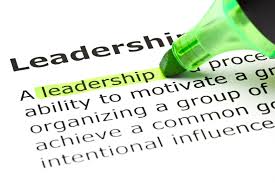
The second focus is in leadership. There should be a high standard of ethical conduct amongst officers (Martin 2011). Therefore, there should be training and mentoring for all new officers to ensure that they understand the rules of law (Bayley & Perito 2011). Without training and even mentoring, young officers could be drawn into corruption because of not knowing how to handle certain situations.

Another focus to understand or prevent corruption is looking at the work environment in which officers deal with. Police are measured in terms of the number of arrests they make and the weapons and drugs they recover (Martin 2011). A lot of people joke about the end of the month when police have to meet their quota and seem to be stricter on society. This is where that notion comes from because of the pressure officers feel to produce, show activity, and get collars (Martin 2011).
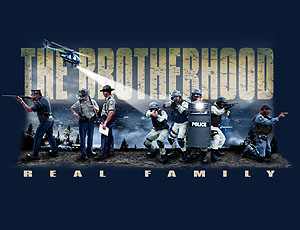
Lastly, there is a police subculture that is fostered, which can either prevent corruption or spread it (Martin 2011). A subculture is a group that shares attitudes, perceptions, assumptions, values, beliefs, ways of living, and traditions (Martin 2011). Because of the hours, and pressures, and close knit group police agencies have, work relationships become stronger than family ties (Martin 2011). This can cause senior officers to test new officers or even coerce them into certain activities (Martin 2011). A great example of this is in the movie Training Day, where actor Denzel Washington plays a corrupt officer who tests his new member of his unit played by Ethan Hawk. Thankfully, Hawk, in the end, refuses to play along with Washington’s corruption. A war between the two takes place, eventually placing Hawk in harms way. But because Hawk plays by the rules, the community that wanted to harm him protects him and turns on Washington because of his unjust ways. Unfortunately, new recruits are impressionable because they want to be liked and feel included. Therefore, it is easy for corruption to spread especially if senior officers are corrupt.
Since corruption is not just an American problem, but also an international problem, there have been some things that commissions around the world have come up with in order to reduce corruption of police officers: create external oversight over police with special focus on integrity, which includes protecting whistleblowers and handling informers; improving recruitment and training; expecting leadership from supervisors; holding all commanders responsible for misbehavior from subordinates; and changing all culture’s to not tolerate misbehavior/corruption (Bayley & Perito 2011). The reason behind commissions coming together to fight corruption is because of the people that are like Roger Rogerson and the character played by Denzel Washington in Training Day. The main defense against police corruption though, no matter where in the world, is hiring candidates that are conscientious because it has been linked to a high integrity for “an incorruptible person is truthful in word and deed just because truthfulness has become second nature with him” (Martin 2011).
Works Cited
Bayley, David, and Robert Perito. Police Corruption: What Past Scandals Teach about Current Challenges. Rep. no. 294. N.p.: n.p., n.d. United States Institute of Peace, Nov. 2011. Web. 14 Oct. 2013. <http://www.usip.org/sites/default/files/SR%20294.pdf>.
CITY OF SHARKS - PART 3. Nswpoliceforce, n.d. YouTube. YouTube, 30 June 2011. Web. 15 Oct. 2013. <https://www.youtube.com/watch?v=YzZnwQV5zRg>.
Martin, Rich. "Police Corruption: An Analytical Look into Police Ethics." FBI. FBI, 22 Feb. 2011. Web. 14 Oct. 2013. <http://www.fbi.gov/stats-services/publications/law-enforcement-bulletin/may_2011/law_enforcement_professionalism>.
Oldschooler. "About Roger Rogerson." Web log post. Aussie True Crime. Blogger, 5 June 2010. Web. 14 Oct. 2013. <http://aussietruecrime.blogspot.com/2010/06/roger-rogerson.html>.
"Roger Rogerson: Out of Jail, Ready to Talk. :: Sunday Profile." Interview by Julia Baird. Roger Rogerson: Out of Jail, Ready to Talk. :: Sunday Profile. ABC Australia, 12 Mar. 2006. Web. 14 Oct. 2013. <http://www.abc.net.au/sundayprofile/stories/s1587758.htm>.
"Roger Rogerson." Sin City. Historic Houses Trust, n.d. Web. 14 Oct. 2013. <http://www.hht.net.au/sincity/players/roger_rogerson>.
Copyright © 2014 http://ambercita04.hubpages.com/ All Rights Reserved
© 2014 Amber







